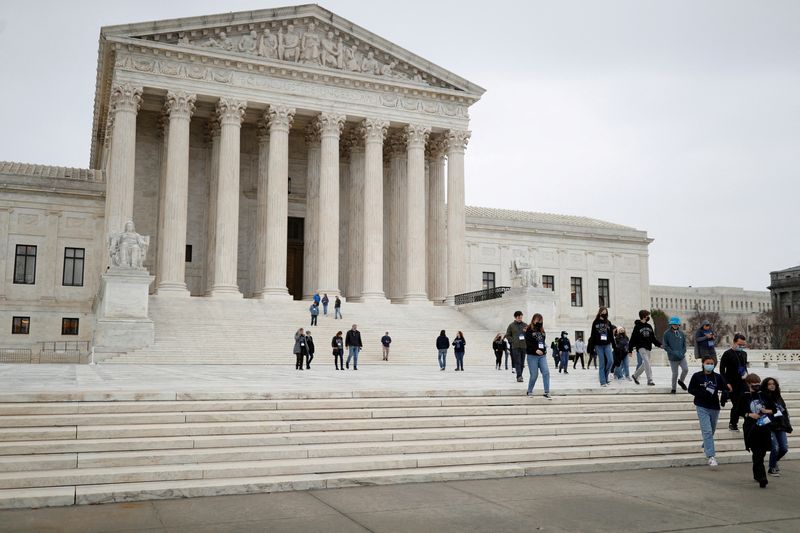By Nate Raymond
(Reuters) - A group representing the top judges in all 50 states is urging the U.S. Supreme Court not to shield actions taken by state legislatures affecting federal elections - such as reconfiguring electoral districts and imposing voting restrictions - from the scrutiny of state courts.
The bipartisan Conference of Chief Justices filed the brief on Tuesday in a closely watched case involving a map drawn by the Republican-led North Carolina legislature of the state's 14 U.S. House of Representatives districts. The state's top court struck down the map on Feb. 4, concluding that the districts were crafted in a manner intentionally biased against Democrats, diluting their "fundamental right to equal voting power."
The Conference of Chief Justices argued that the U.S. Constitution does not prevent state courts from reviewing such congressional maps for violations of state constitutions, as the Republican state legislators defending the map argue.
The North Carolina Supreme Court rejected the Republican arguments seeking to exempt U.S. congressional electoral maps from legal review in state courts. A lower state court on Feb. 23 rejected a redrawn map submitted by the legislature and instead adopted a different map drawn by a bipartisan group of experts.
The conservative-majority U.S. Supreme Court will hear the case in its next term, which begins in October, with a decision due by June.
The Republican defense of the North Carolina legislature's map relies on a legal theory called the "independent state legislature doctrine" that is gaining traction in conservative legal circles and, if endorsed by the U.S. Supreme Court, would vastly increase politicians' control over how elections are conducted.
Under that doctrine, language in the U.S. Constitution called the Election Clause gives state legislatures, not state courts or other entities, authority over election rules including the drawing of electoral districts.
The Conference of Chief Justices in its brief said that argument flew in the face of history and that the Constitution does not bar states from allowing their courts to review state election under their state constitutions.
"The Elections Clause does not derogate from state courts' authority to decide what state election law is, including whether it comports with state and U.S. Constitutions," the conference's lawyers wrote.
Two groups of plaintiffs, including Democratic voters and an environmental group, sued after North Carolina's legislature passed its version of the congressional map last November. The plaintiffs argued that the map violated the North Carolina state constitution's provisions concerning free elections and freedom of assembly, among others.

The dispute is one of numerous U.S. legal battles over the composition of electoral districts, which are redrawn each decade to reflect population changes measured in a national census, last taken in 2020. In most states, such redistricting is done by the party in power, which can lead to map manipulation for partisan gain.
Republicans also have enacted voting restrictions in various states that they say are needed to combat fraud but critics contend are intended to reduce the voting power of Democrats.